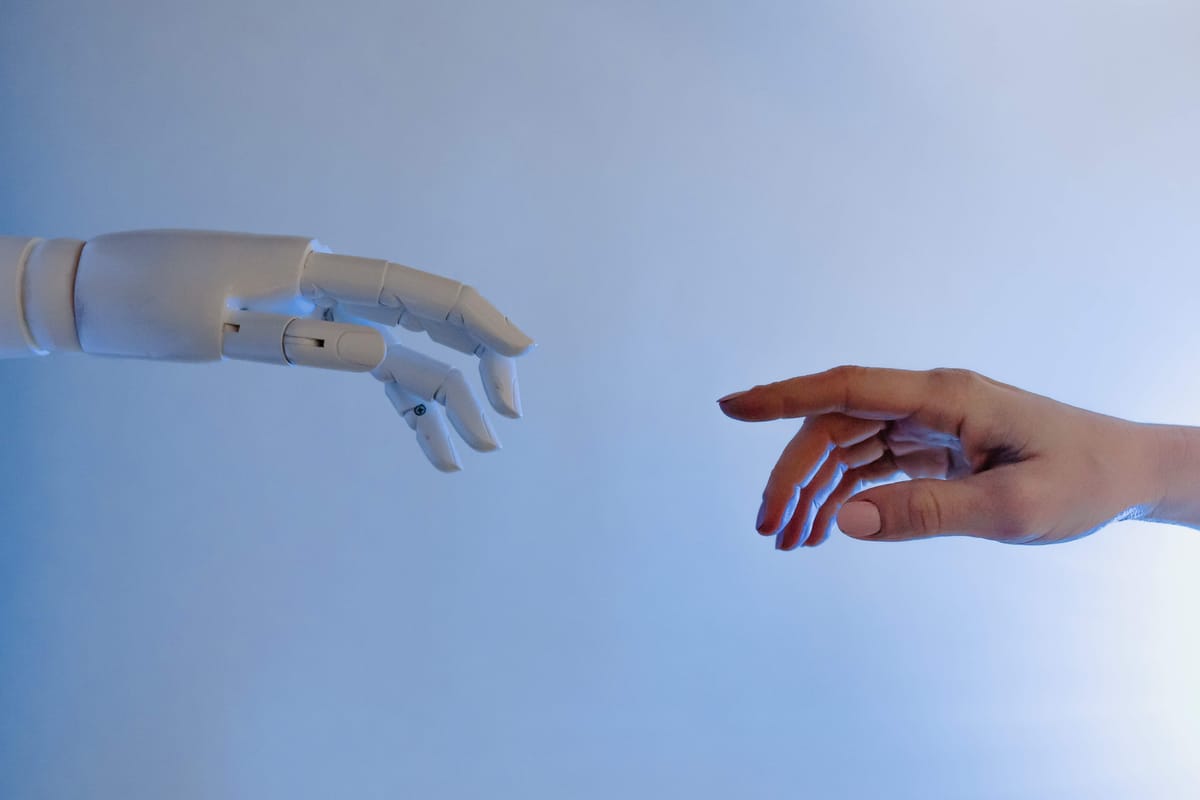Are you truly understanding your customers? With the new year upon us, we'll hear predictions on several topics, including customer needs and how to market to them. However, it's arrogant to assume we know exactly what the customer wants. I've always believed, and learned through experience, that customers themselves tell you what they want. All you need to do is listen.
Marketing has to be business-to-human (B2H)
Human-centric marketing has been around for a while but is often forgotten. The focus over the years has been on the B2B-B2C divide when it's simply not a binary choice.
Instead, taking a business-to-human approach will help us connect with our audiences as we continue to explore ways to engage them. We’re entering the year with world events that in many ways are divisive, so it’s more important than ever to be able to appeal to humanity to enable better communication for both brands and customers.
It is important to listen to your customers by talking to them. Find out what their pain points are, what solutions you can provide to satisfy those, and how you can tailor them to meet those needs. Then it’s about driving alignment between sales and marketing around the insights you learn. At the end of the day, your customer is a person, with wants, desires, and key motivations that need to align.
When the customer's needs align with your efforts, you can think about what that might mean for a wider group of customers. And indeed, how it might influence lead generation activity for a group of prospective customers.
Prefer to listen? Check out Sarah's appearance on the CMO Convo podcast 👇
AI is a great tool, but it doesn’t replace people-focused marketing
Over the past year, AI has received a lot of attention, especially by the media which has generated some fears around it. The truth is less black and white. As with any technological development, there are two sides to the coin – on the one hand, jobs will change and on the other, there will be more job opportunities and greater efficiency gains.
The really exciting thing for us, is that there are elements of marketing that AI can drive. AI can speed up some aspects of work, which means that we can free up the time of marketers to do more, learn more, think more, to grow and ultimately to connect better with their audiences.
Marketers can use artificial intelligence to better understand their customers, create enhanced customer experiences, and make smarter marketing decisions.
There are more opportunities with AI than not. And as marketers, we’ll need to expand our knowledge and bring new skills to push boundaries, that’s what I call innovation.

Connecting on a human level
As a CMO, being more human and human-centric is not limited to external audiences alone. It’s also about our people and our teams.
It’s important to keep people engaged and consistently tell our story. If internally everyone understands our company purpose, we can all better listen and look after our customers.
To keep our teams engaged we need to create a work environment of empowerment and respect, that embraces kindness. Kindness I believe is one of those hidden gems that we rarely talk about. Kindness in the workplace should be something that we dial up a lot more. It doesn’t mean that we don’t challenge ourselves. It is about understanding that there’s another person at the other end of anything we do and make sure we bring that through.
In addition, the diversity of our teams can play a critical role in the success of marketing. CMOs must create more diverse teams that can bring new thinking and ideas. As a business decision, if nothing else. It is more efficient to market to a diverse audience if you have people from diverse backgrounds and industries rather than a group of people who think in the same way. In a diverse environment, there is the potential to develop solutions effectively, by challenging each other's viewpoints.
The bottom line is that true marketing success can be achieved when two things work harmoniously. First, an internal team with diverse perspectives led by someone who equally values listening to them and believes in kindness. Second, a brand that listens to its customers and places them at the heart of all marketing activities. The result is a customer base who feel valued and connected to the business. And that is the power of human connection.

FAQs
Q: Why is human connection marketing important for B2B?
A: Human connection is vital in B2B marketing because business customers are still human at the end of the day. No matter how data-driven or technologically advanced B2B buying processes become, there are still people behind those decisions that have pains to be solved and desires to be met.
As the excerpt explains, taking a "business-to-human" approach enables better communication both for brands and customers. By truly listening to customers, understanding their needs, and tailoring solutions specifically to satisfy those needs, brands can drive better alignment between their sales and marketing efforts. When a brand demonstrates that level of care and personalization, it builds trust and loyalty with customers over time.
Ultimately, if B2B marketers lose sight of the human elements of their audience and fail to establish authentic connections, they will struggle to accurately target customer needs or motivate buying decisions. The foundation of marketing success, regardless of B2B or B2C, lies in appealing to universal human wants and motivations. The excerpt rightly points out that divisive world events make these human connections more important than ever for marketers to embrace.
Q: Why are people-based marketing teams important when we have AI?
A: While AI tools can enhance efficiency and provide useful customer insights, people are still essential in marketing teams to drive human connection. AI doesn't replace the need for marketers who can listen, understand, and connect with audiences on a personal level.
AI can speed up analysis and optimize experiences, freeing up marketers to focus more on creative strategy, messaging, and relationship building. But the empathy, intuition, and innovation needed to truly engage consumers comes from people. Diverse teams and inclusive leadership that tap into different perspectives are key for identifying customer needs and shaping campaigns that resonate.
Being "more human and human-centric" internally radiates externally to customers as well. AI insights mean little if not paired with the human skills to interpret what motivates and matters to real people. So while AI has an important role in the marketing mix, people-powered teams led with emotional intelligence and kindness are indispensable for establishing genuine bonds between a brand and its customers. Technological tools supplement but can never replace heartfelt human connections.



 Follow us on LinkedIn
Follow us on LinkedIn




